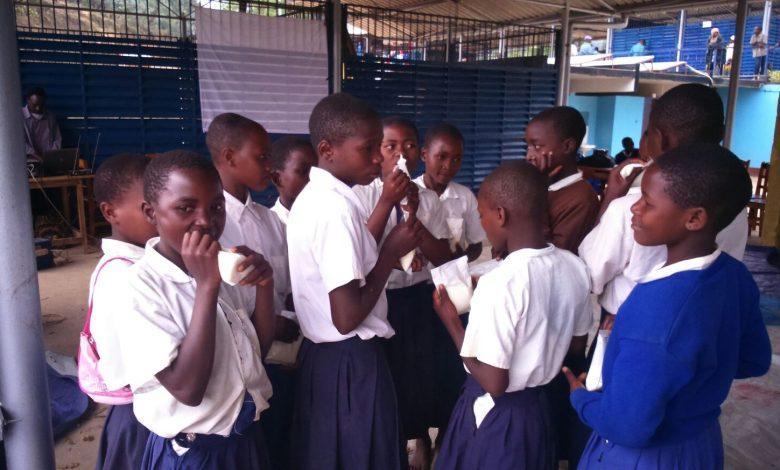Africa-Press – Tanzania. THE Tanzania Dairy Board (TDB) has expanded the National Milk-Drinking Programme to 218 schools, benefiting 122,481 students with milk education and distribution.
In collaboration with various stakeholders, TDB has also managed to reach 11 regions as part of its continued efforts to promote milk consumption in schools with the aim of improving students’ physical and mental health.
The TDB Registrar’s Representative, Deorinidei Mng’ong’o, revealed the progress during a promotion event for the programme held in Geita Region.
He explained that, scientifically, it is recommended for every individual to drink at least one glass of milk daily to support sustainable physical and mental growth.
“The purpose of the school milk-drinking programme is to reduce cases of stunting, because if stunting is not addressed early, it can become a permanent problem for a child,” he said.
“By reaching the children early, we can ensure the development of a future generation of youth who are intelligent, capable of critical thinking, and able to build a prosperous nation,” he added.
The Land O’ Lakes Organisation Coordinator, Mr Joackimu Balakana, said the goal of investing in milk-drinking education in schools is to make children ambassadors of the campaign within their communities.
On his part, the Representative of the Country Director of Heifer International, Mr Nyamate Musobi, noted that the school milk-drinking campaign has achieved remarkable success in the Southern Highlands, reaching over 16,000 children.
“We continue to encourage stakeholders to ensure that regions like Geita and the entire country benefit from such projects so that together we can achieve transformation,” said Mr Musobi.
Meanwhile, the Representative of the Geita Regional Commissioner, who is also the Geita District Commissioner, Mr Hashimu Komba, called on schools, institutions, and development partners to join forces in producing positive outcomes through the school milk-drinking initiative.
“Just as we have a nutrition programme in our schools, the issue of milk availability should also be part of our special school nutrition programme,” he said.
“If all educational institutions introduce dairy cow farming programmes in partnership with both local and international stakeholders, we will ensure sustainable milk accessibility,” he said.
For More News And Analysis About Tanzania Follow Africa-Press







